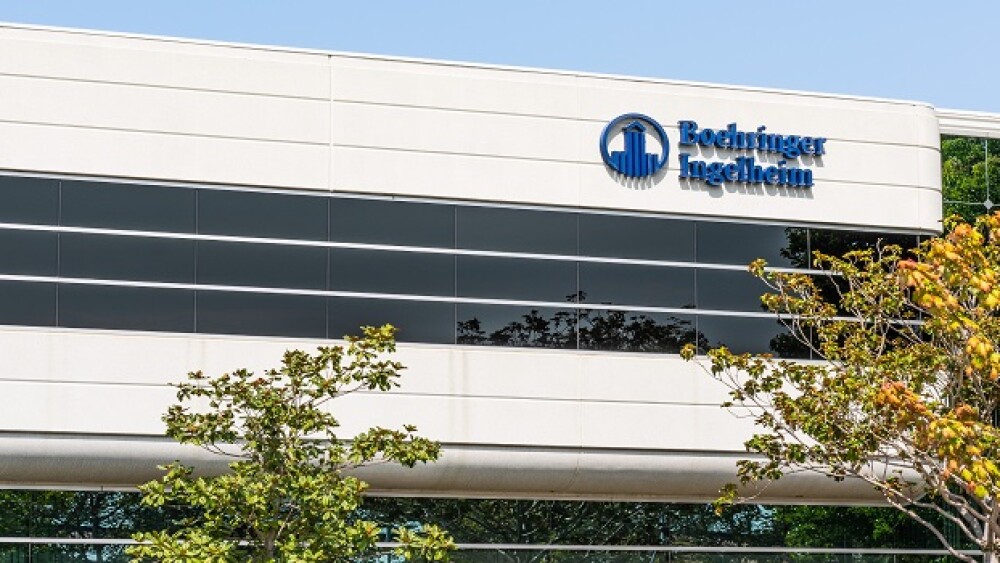Boehringer Ingelheim made a splash on Tuesday, announcing its intention to pump €25 billion ($27 billion) into its R&D pipeline over the next five years.
Sundry Photography/Getty Images
Often media-elusive, Boehringer Ingelheim made a splash on Tuesday, announcing its intention to pump €25 billion ($27 billion) into its R&D pipeline over the next five years. Boehringer is reinvesting the rewards from its Eli Lilly-partnered SGLT2 inhibitor Jardiance, which brought in €3.9 billion in 2021.
While striking a somber note due to the war in neighboring Ukraine, the German multinational lauded 2021 achievements of €20.6B (a raise of 5.4% over 2020), a small raise in operating income and a 25% gain for Ofev (nintedanib), its pulmonary fibrosis drug which in September 2019 also became the first U.S. Food and Drug Administration-approved treatment for systemic sclerosis-associated interstitial lung disease (SSc-ILD).
“All our businesses contributed to the solid financial results in 2021, a strong achievement, especially when considering the overall pandemic and economic situation. As a result, we can continue making significant investments and have strengthened our overall financial basis – and thus our independence,” said Michael Schmelmer, a member of the board of managing directors with responsibility for finance and group functions.
With recent approvals for Jardiance in heart failure with reduced ejection fraction and a February expansion to all heart failure patients at risk of death and hospitalization, the company is primed to increase upon the €4.1 billion in R&D investments it made in 2021. Boehringer and Lilly originally won approval for Jardiance in 2014 for Type 2 diabetes.
Boehringer is not resting on its laurels, however. Instead, it plans to launch up to 15 new drugs by 2025. These launches will come from the 100-pus clinical and preclinical projects in what the company calls its “Human Pharma” pipeline. Boehringer also makes medicines for both companion animals and livestock.
Boehringer stated “a key focus in research is to gain a deeper understanding of the connections between different diseases,” citing Jardiance as an example of the success of this strategy.
In the business review, Boehringer highlighted experimental drugs such as BI 1015550, which in February won Breakthrough Therapy Designation from the FDA for idiopathic pulmonary fibrosis. In May 2021, BI 425809, a Gly-T1 inhibitor, was granted the same for the treatment of cognitive impairment associated with Schizophrenia. The company told investors that a “high-level data readout” is anticipated for later this year.
On March 28, Boehringer presented new data from the pivotal Phase II Effisayil™ 1 trial of spesolimab at the 2022 American Academy of Dermatology (AAD) Annual Meeting. A Biologics License Application for spesolimab, which demonstrated significant clearance of skin pustules in patients with generalized pustular psoriasis (GPP) flares, has already been accepted by the FDA under priority review.
Boehringer has already gotten a jump on spending some of its proposed investment dollars. Also on Tuesday, the company announced it had signed a pact with Celeris Therapeutics to develop next-generation targeted protein degraders. Financial terms of the agreement were not disclosed.
The company acknowledged that it expected “the ongoing COVID-19 pandemic” and “geopolitical tensions in Europe,” along with a “challenging industry environment” to have an impact on its 2022 results.
“We present these results at a time when war has been brought back to Europe,” said Hubertus von Baumbach, chairman of the board of managing directors. “Our thoughts are with all Ukrainians. The aggression against the country is heartbreaking. We are supporting those seeking refuge and those in need in Ukraine, through short-term and long-term financial support, through product donations and supply of medicines, and many of our employees engage in support initiatives using our volunteering days program. We all hope that this horrific situation will end soon.”






